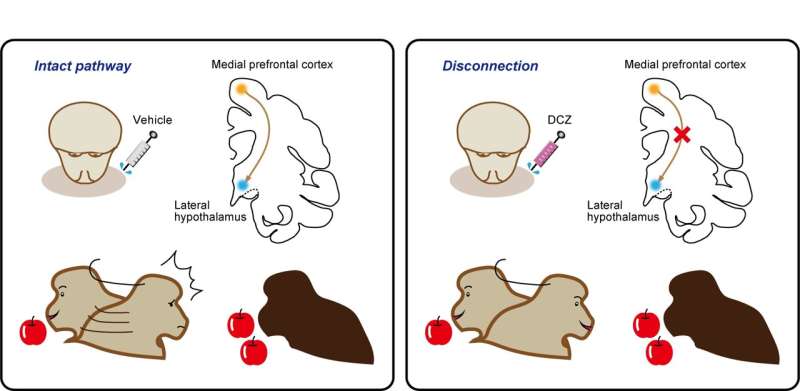This article has been reviewed according to Science X's editorial process and policies. Editors have highlighted the following attributes while ensuring the content's credibility:
fact-checked
peer-reviewed publication
trusted source
proofread
'They got more than me!' The brain circuit for socially subjective reward valuation

Although you might never have consciously considered it, it's very likely that when you receive a reward, part of the value that you place on it depends on what other people have received as similar rewards. In a recent study published in Nature Communications, Japanese researchers have identified an important brain circuit for this specific process.
Although researchers have identified the brain regions that are important for deciding the value of a reward in relation to those of others (a process the authors termed 'socially subjective reward valuation'), the connections between these regions have never been tested experimentally.
The research team from the National Institute for Physiological Sciences (NIPS) decided to create a temporary disconnect between the medial prefrontal cortex, which is part of the social brain network, and the lateral hypothalamus, which is involved in social reward valuation.
"We used a relatively new technique that is commonly known as DREADD, or 'designer receptor exclusively activated by designer drug', in macaque monkeys," says senior author of the study Masaki Isoda. "This method allowed us to temporarily block most of the connections from the brain's medial prefrontal cortex to the lateral hypothalamus."
To test the effects of functionally disconnecting two regions of the monkeys' brains responsible for socially subjective reward valuation, the researchers used an existing experimental setup. Two monkeys were sat together and shown pictures on a screen. After seeing each picture, only one of the monkeys (or sometimes neither of the monkeys) received water as a reward.
By varying the probability of reward for each monkey over a series of tests, the researchers were able to see what happened when the monkeys expected a reward for themselves (they made many licking motions with their tongues) versus a reward for the other monkey (they made fewer licking motions).
"Using this test, we were able to see the effects of disconnecting the medial prefrontal cortex from the lateral hypothalamus on the monkeys' expectations of rewards," says Isoda. "We were excited to see that, with this disconnect, the monkeys were much less susceptible to the prospect of others receiving rewards, but that their own expectations of a reward did not change, suggesting that this pathway is a key circuit in socially subjective reward valuation only."
Together with recent research suggesting that the medial prefrontal cortex/lateral hypothalamus circuit is crucial for social rank information in mice, these results indicate that this circuit underlies many important social behaviors. A better understanding of this pathway will aid in the clinical diagnosis and treatment of injuries or alterations to the medial prefrontal cortex and lateral hypothalamus.
More information: Atsushi Noritake et al, Chemogenetic dissection of a prefrontal-hypothalamic circuit for socially subjective reward valuation in macaques, Nature Communications (2023). DOI: 10.1038/s41467-023-40143-x



















